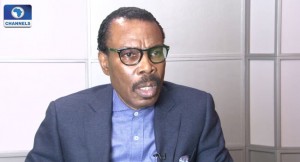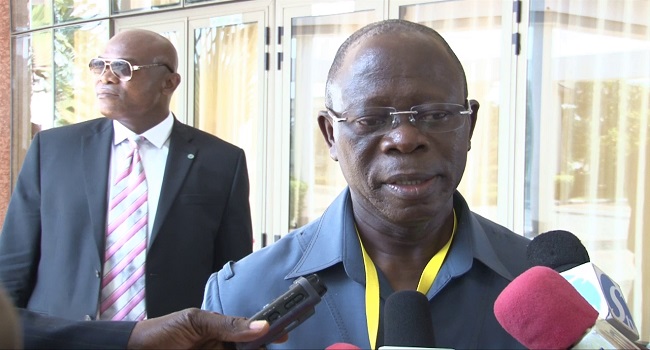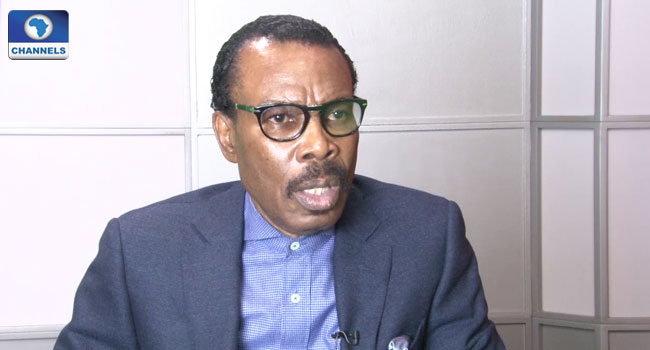
After the State Governor, Comrade Adams Oshiomhole, announced the increment, some Nigerians expressed scepticism on the State, government’s ability to fulfil such promise.
Encourage Investment
Giving his opinion on the historical wage increment by the Governor, a one time labour leader, an economist, Mr Bismarck Rewane, said the state had the capacity to fulfil such promise.
“Edo State has a much more efficient fiscal system and that is because Edo State has actually encouraged investments rather than just being bureaucratic,” he stressed.
The State has been able to attract investments from top companies in Nigeria – Guinness, Dangote Group and other transit organisations.
Edo State is a transit hub for east-west traffic and south-north traffic.
“Edo State has history, culture and industry.
“It has an economic management team that is led by somebody from the private sector,” Mr Rewane pointed out.
While announcing the new wage increment, the Governor said the state had been able to eliminate ghost workers from its payroll.

The economist said their view of things was much more proactive and much more strategic than what is seen in other states.
“They do not have a bloated civil service and more than anything else, the governor is a product of union movement in Nigeria and he has been able to see things from a different perspective,” Mr Rewane further pointed out.
Governor Oshiomhole had made the announcement at a period that the Nigeria Labour Congress (NLC) and the Trade Union Congress are pushing for new minimum wage of 56,000 Naira.
Defending the labour unions’ proposal on Monday, the Acting Secretary General of the NLC, Mr Onyeka Chris, said Nigerian states had the capacity to pay the new minimum wage.
He suggested a more prudent and responsible way of spending as the way to go.
The labour unions’ proposal is coming at a time that some Nigerian states are grappling with the payment of salaries, with some states still owing salaries after the Federal Government had provided a bailout.
Most states rely solely on allocations from the Federal Government and paying less attention to Internally Generated Revenue. This allocations from the government at the centre has dropped, a situation occasioned by the drop in the price of crude in the past one year.
With the current situation, the Nigerian government is looking to further diversify the economy, with more focus on Agriculture and solid minerals that have been left untapped for years.
The mining of minerals in Nigeria accounts for only 0.3 per cent of its GDP, due to the influence of its vast oil resources.
The domestic mining industry is underdeveloped, leading to Nigeria having to import minerals that it could produce domestically, such as salt or iron ore.
Some other minerals that exist in Nigeria are, Coal, Lignite, Coke, Gold, Columbite, Wolframite, Tantalite, Bitumen, Iron Ore and Uranium,
While the labour unions are determined to push for the new wage, the Nigerian government, through President Muhammadu Buhari’s various travels, is looking for more foreign investments in the ‘fallow sectors’ to boost revenue and possibly afford the new wage which labour said was long overdue.

